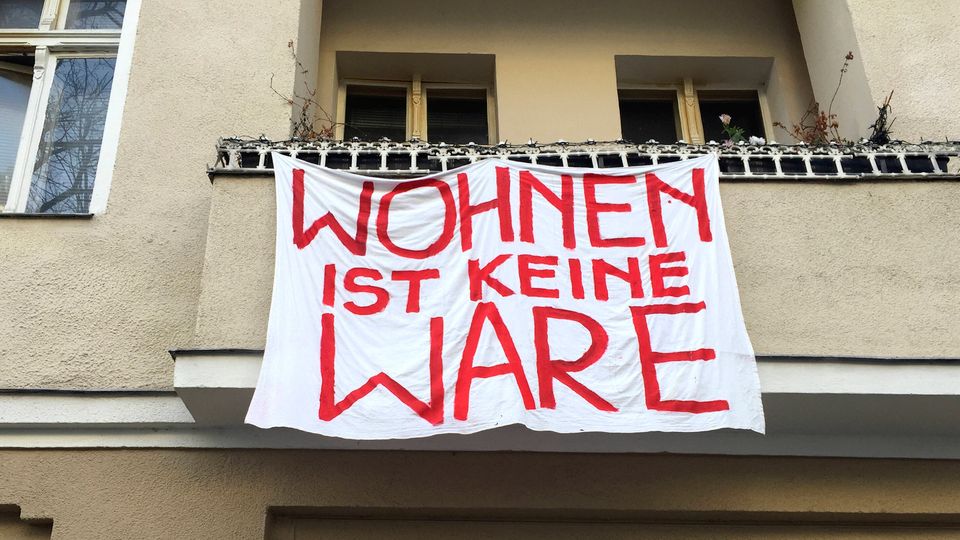Berlin has finally fired its opening salvo in the war against rent gouging, and it’s making landlords sweat. A property owner in Friedrichshain-Kreuzberg just got slapped with a €26,253.50 fine for charging what can only be described as absolutely criminal rent levels. We’re talking 190% above the local Mietspiegel, the official rent index that’s supposed to keep things vaguely reasonable in this city of housing desperation.
The case involves a tiny 38-square-meter apartment where the landlord apparently thought they could get away with nearly triple the legally permissible rent. German law allows landlords to charge maximum 20% above the local comparative rent, but this particular property owner decided to treat legal limits as mere suggestions.

The Anatomy of a Historic Fine
What makes this case particularly satisfying is that it’s the first legally binding Bußgeldbescheid (fine notice) in Friedrichshain-Kreuzberg for Mietwucher. The landlord initially had the audacity to appeal the decision but abruptly withdrew their objection one day before the scheduled court hearing. Nothing like the prospect of public humiliation to encourage compliance.
The financial pain doesn’t stop at the fine. The former tenant is also entitled to €22,264.08 in overpaid rent, assuming they file the necessary paperwork. That’s nearly €50,000 in total consequences for what essentially amounts to legal extortion.
Berlin’s New Enforcement Arsenal
This enforcement action isn’t happening in a vacuum. Back in March 2025, the Berlin Senate established the Mietpreis-Prüfstelle, a rent price checking office designed specifically to combat this kind of predatory behavior. The results have been staggering: in its first six months, the office found excessive rents in more than 93% of cases it reviewed.
Let that sink in. Ninety-three percent. The problem isn’t a few bad apples, it’s apparently the entire orchard.
The Mietpreis-Prüfstelle offers both phone and in-person consultations for tenants who suspect they’re being ripped off. It’s essentially a government-funded service helping people navigate the Byzantine world of German rental law while identifying the worst offenders for prosecution.
How Mietwucher Actually Works (Or Doesn’t)
For international residents, the German concept of Mietwucher can be confusing. Here’s the deal: every German city maintains a Mietspiegel (rent index) that establishes the typical rent for apartments based on size, location, age, and amenities. Landlords can legally charge up to 20% above this figure. Anything beyond that is technically an administrative offense under the Wirtschaftsstrafgesetz.
The system is designed to prevent exactly what happened in Friedrichshain-Kreuzberg, landlords exploiting housing shortages to charge whatever desperate tenants will pay. The challenge has always been enforcement, which requires tenants to know their rights and navigate a complex bureaucratic process to claim them.
Why This Changes Everything
The deputy district mayor, Regine Sommer-Wetter, called it “a good day for tenants” and expressed hope that this case would create a “Vorbildwirkung” (precedent-setting effect) for other Berlin districts. She’s not wrong.
For years, landlords have operated with near-impunity, knowing that most tenants, especially international residents unfamiliar with the system, wouldn’t challenge illegal rents. The risk calculation was simple: the potential profits from overcharging far outweighed the minimal risk of enforcement.
This €26,000 fine changes that equation dramatically. Suddenly, rent gouging isn’t just a morally questionable business strategy, it’s a financially dangerous one. When you factor in the requirement to repay all overcharged rent plus potentially massive fines, the economic incentive to cheat evaporates.
The Reality Check for Berlin Renters
While this enforcement action is significant, it’s worth noting that tenants still bear the burden of enforcement. The Mietpreis-Prüfstelle can confirm illegal rents, but tenants themselves must pursue claims against their landlords. For many, this means risking their housing situation in an already brutal market.
Additionally, there’s the statute of limitations issue. Many tenants don’t realize they can claim back overpaid rent until years later, by which time they may have lost documentation or moved on.
For international residents specifically, the challenge is even greater. The German rental system operates on relationships and local knowledge that newcomers simply don’t possess. Landlords know this and have historically exploited it.
How to Protect Yourself
If you’re renting in Berlin or planning to, here’s what you need to know:
- Check the Mietspiegel: Before signing anything, compare the offered rent against the official index for that area and apartment type.
- Document everything: Keep records of all rent payments and communications with your landlord.
- Use the Mietpreis-Prüfstelle: If you suspect illegal rent, contact them immediately for verification.
- Know your rights: German tenant protection laws are strong if you know how to use them.
- Join a Mieterverein: Tenants’ associations provide legal advice and support for membership fees that are often tax-deductible.
The Bigger Picture
This enforcement action comes as Berlin continues grappling with one of Europe’s most severe housing crises. With vacancy rates below 1% in central areas and prices that have doubled in the past decade, the city has become a pressure cooker of housing desperation.
The political will to address Mietwucher appears to be growing, with calls for even stricter enforcement mechanisms and harsher penalties. Some politicians are already discussing making rent gouging a criminal offense rather than merely an administrative violation.
For now, though, this €26,000 fine sends a clear message: the era of unchecked rent exploitation in Berlin might finally be coming to an end. And for anyone who’s ever opened a rent letter and felt physically ill, that’s genuinely good news.
The question now is whether this represents the beginning of systematic enforcement or just one high-profile case designed to create headlines. For the sake of everyone trying to make a life in this incredible city, let’s hope it’s the former.



